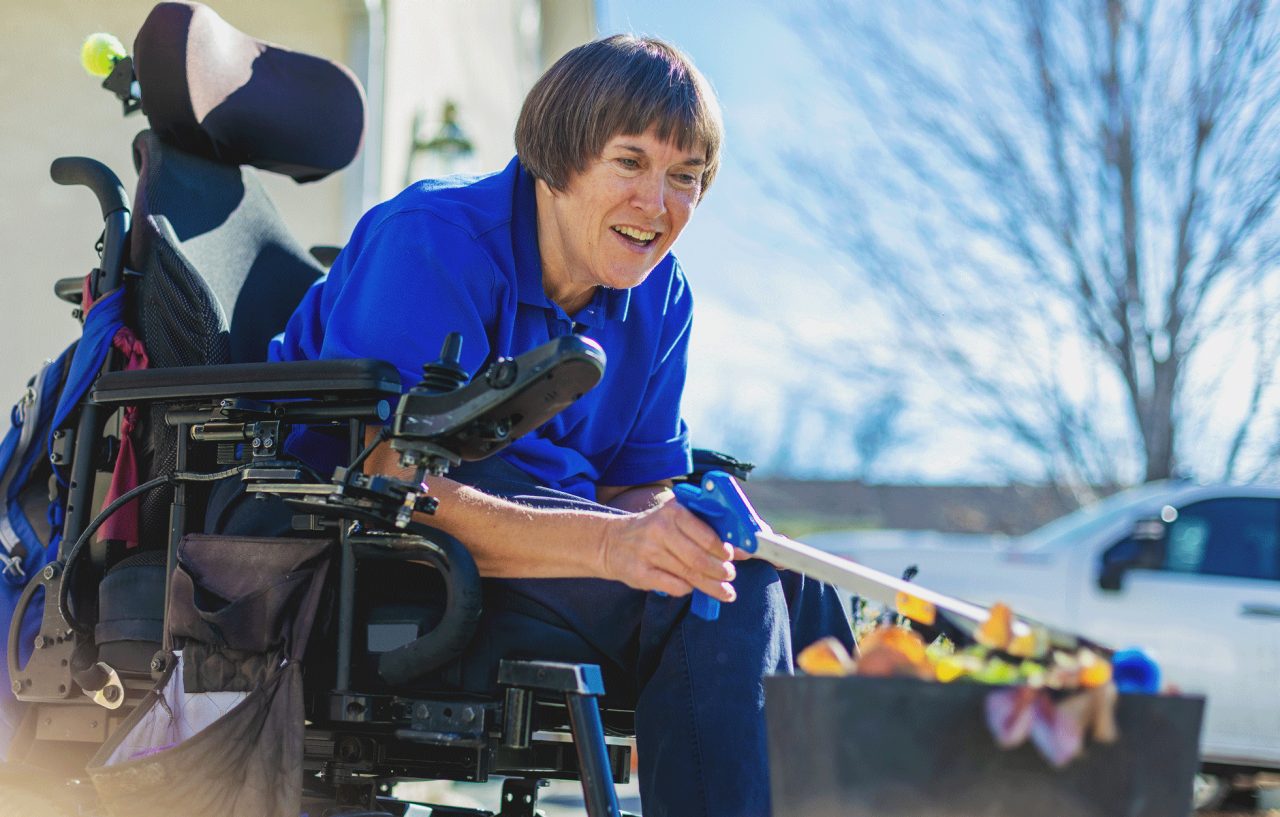Caring for Someone with Multiple Sclerosis

The unpredictable illness of multiple sclerosis can be confusing to deal with, as it changes day to day and symptoms may not be visible to others. Learn more here.
Often caregivers feel that caring for someone with multiple sclerosis (MS) is an honor, but that doesn’t mean it’s easy. When someone you love is first diagnosed with MS, you may panic. But it remains possible to maintain a happy loving relationship and enjoy good times together.
A good starting point may be the guidebook “A Guide for Support Partners.” You might read up on MS or attend informational meetings or support groups with your loved one.
Remember that the condition is not the result of your loved one’s choices. The cause of MS is still unknown, and the main risk factors, age and genetics, are unavoidable. In MS, the immune system attacks the nerves, specifically a protective sheath called myelin. The nerves then deteriorate.
Some people get steadily worse. With severe MS, they may lose the ability to walk on their own. Others have a relapsing-remitting pattern: They get new symptoms or relapses over days or weeks, followed by months or years with few symptoms.
At least half of the people in this group will deteriorate steadily within 10 or 20 years of onset.
YOU MIGHT ALSO LIKE: How to Prevent Multiple Sclerosis Symptoms
Symptoms of multiple sclerosis
- Numbness or weakness, most often on one side of the body
- Electric-shock sensations in the neck, especially when bending forward
- Tremor or unsteadiness
- Pain in on eye, loss of vision, and blurry or double vision
- Blurred speech
- Tingling
- Problems with sexual, bowel, or bladder function
How to care for someone with multiple sclerosis (MS)
It’s important to establish that your loved one is comfortable with your involvement and feels free and able to ask you for your help or tell you if anything isn’t going well. Keep checking in. One day your loved one may need help; another day she may not.
One study concluded that caregivers sometimes take over unnecessarily. People with MS often feel best if they master challenges and maximize their independence. Respect their wishes.
To start the daily conversation you might simply ask, “How are you feeling?”
You can go to medical appointments, ask questions, and help manage medications and treatments.
Modifying the home
Your goal is to enable your loved one to move around as freely and safely as possible. You may need to renovate, but not all changes are expensive.
- Clear clutter and arrange furniture so there’s lots of room to move.
- Get rid of any loose rugs or carpeting and exposed electric cords.
- Use night lights and motion detection lights.
- Make stairways safe.
- Use non-skid mats in the bathroom.
- Install handrails wherever needed.
- Put in ramps if necessary.
- Keep frequently used items well within reach for your loved one.
Staying organized
MS isn’t a crisis that is over quickly. It requires strategies for the long haul. Getting organized is worth the investment. You might want to:
- Keep a medication log to track symptoms, side effects, and any medical results.
- Organize legal documents like a healthcare proxy or power of attorney.
- Track appointments on a calendar available both to you and others.
- Keep important phone numbers, emails, and logins on a list in a visible spot and online.
Avoiding burnout
If you are actively involved, you need to take even better care of yourself than you might have before. Make sure you get enough sleep and exercise and eat healthily. Stay connected to your friends and interests.
You may need a relaxation practice like meditation, yoga, gardening, or quiet walks. A pet may be a good companion.
Don’t try to do everything alone. It sounds easy, but many caregivers neglect asking for emotional or other support they might need.
Other family or friends may want to get involved and can do so with some planning ahead.
Think about the strengths of the people available. An aunt might be savvy about finances. Your brother may be a skilled listener, able to defuse conflict and inspire confidences. A neighbor might be happy to keep your loved one company while you take a break.
Think about everyone who has offered to help. It’s sometimes useful to call a family meeting in person or by videocall.
If you are emotionally or physically exhausted, losing sleep, falling ill more often, losing interest in your hobbies, or beset by emotions (sadness, anger, irritability), take action to help yourself.
What you can do
Make use of helpful organizations.
- The Caregiver Action Network hosts an online forum for caregivers. People who have faced similar problems are often the best advisors.
- The Family Caregiver Alliance also provides resources.
- The National Multiple Sclerosis Society offers MS Navigators, staff trained to connect you with helpers and assess what you need now. Call 800-344-4867 and ask to speak with a navigator.
- Lotsa Helping Hands is a website for organizing help for your informal support network.
- Next Step in Care focuses on transitions, when you and your loved one have changing needs.
- Home care may be available for a fee.
You can do only your best. Your loved one is lucky to have you, and you may be surprised how generous other people will be if you allow them to chip in.
Updated:
November 28, 2022
Reviewed By:
Janet O'Dell, RN